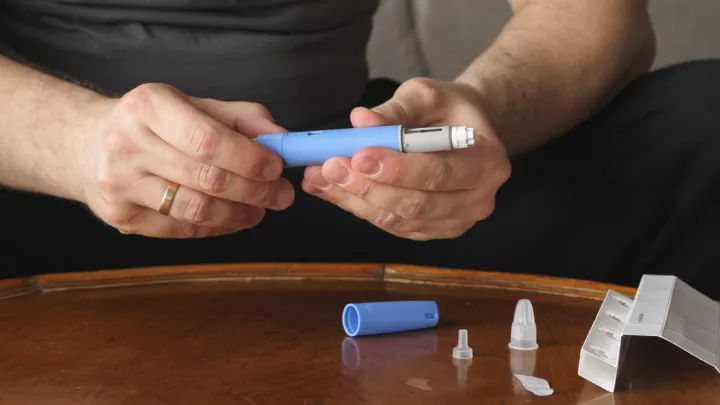How to stop my winter nosebleed

The cold, dry winter air can wreak havoc on our bodies in a number of ways — dry, itchy skin, cracked lips and even nosebleeds.
“The lining of your nose contains many tiny blood vessels that lie close to the surface and can be easily damaged,” says Christie Barnes, MD, ear, nose and throat specialist at Nebraska Medicine. “When the air is dry, it can cause your membranes to dry out as well, making your nose more prone to bleeding.”
Colds, allergies and frequent nose blowing can trigger nosebleeds. In addition, people on blood thinners, those with high blood pressure and people with a deviated or crooked septum, are also more likely to have nosebleeds.
To schedule an appointment with one of our ear, nose and throat specialists, please call 800.922.0000.
To stop a nosebleed, follow these steps:
- Lean forward to reduce the amount of blood going into your stomach
- Hold pressure tightly on the fleshy part of the nostrils by squeezing them together continuously for about 10 minutes without stopping to check it
- Avoid putting anything in your nose such as a tissue or cotton swab as this can lead to further bleeding
- If your nose begins to bleed again, blow out vigorously to clear the nose of blood clots. Then spray both sides of nose with a decongestant nasal spray that contains oxymetazoline (Afrin) and apply pressure again
To help reduce the occurrence of nosebleeds, lubricate your nostrils regularly. Dr. Barnes recommends using coconut oil, which remains solid at room temperature, but will melt when it comes in contact with your body temperature. Apply a small amount into the nostrils once or twice a day with your fingertip and work around by squeezing the nostrils together.
While most nosebleeds can be bothersome and easily managed at home, occasionally they can be severe, says Dr. Barnes. If you experience frequent and severe nosebleeds, you may need a blood vessel cauterized, which can be treated in the office of an ear, nose and throat doctor. Nosebleeds caused by a deviated septum can also be resolved by having surgery to repair the deviated septum.
“If you should have a nosebleed that doesn't stop or is recurrent, we offer same-day appointments at our Village Pointe, Midtown, and Bellevue Health Center locations," says Dr. Barnes. "Seek emergency care if your nose bleed happens after office hours and does not stop with the above measures, you begin to feel faint or lightheaded or the nosebleed is due to an accident, fall or injury to the head."




